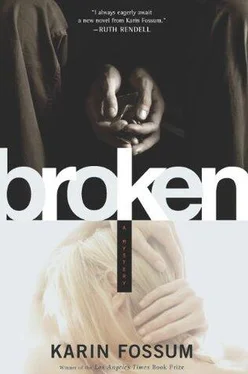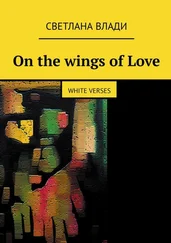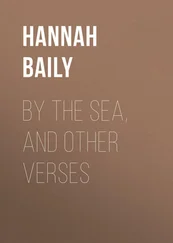‘And what have you got to show for it?’ As soon as he said that he was reaching for my hand. ‘No, I’m sorry. That really did come out wrong.’
‘Did it?’ I pulled away from him.
‘See, you still glamorize both of them. I’m sure it was exciting, Aasmaani. I used to see it in your face some days when you’d come back home after spending a day or a weekend or longer at her house. You’d come back and you’d look around at us, your other family, as we talked about renting videos and going to the Chinese for dinner, and there would be this look on your face saying: is this it? Is this all you’re capable of? Well, I’ll tell you something. Something they were capable of and we weren’t: leaving.’
‘Stop it.’
‘You want to know why I hated him? That’s why. Because he kept forcing her to choose between him and you. He kept getting himself into situations and then he’d have to leave the country, or he’d get carted off to prison, and then she’d be gone, poof! just like that, and I’d have to hear my daughter crying herself to sleep at night. That time they stayed away for three years. Three years, Aasmaani. Why? Because it was dangerous for him to come back, and when she wanted to return, she even called me to let me know which flight she was on, he scared her into thinking they’d arrest her to get to him. He even made her think she might put you in danger.’
‘No.’ As soon as I said it, there it was. A memory making its way to the surface in that inexplicable way of latent memories which need just the right spark to wake them up. I stood up, sat down again, tried to bring my father’s face into focus. It wasn’t Omi who told her to stay away. It was me. When my father came to my room to say he’d spoken to her and she was coming back, I was the one to call her back and say, ‘Don’t.’ I wanted her with me. It’s not that I didn’t. But when she was abroad, I felt safe. Omi wouldn’t be imprisoned, she wouldn’t be beaten and bruised in demonstrations, or spirited away in the night, never to be seen again, as happened to so many people she and Omi knew. I said, stay away, I’ll come to you in the summers and winters. I said, what if I’m at your house when they come knocking at your door in the middle of the night, looking for you? What will happen to me then? I said that knowing, with all the assurance in the world, that she might be willing to risk herself, but she wouldn’t risk me — not my physical self, not my state of mind. I said, Mama, when you’re here I get scared.
Only now, when I had a mere fraction of the reason she ever had to jump when the phone rang, to hold my breath when a motorcycle seemed to be following me, to know what it meant to feel you were being watched — only now, in those moments when the ringing phone made me look next door and think, suppose it isn’t just paranoia, suppose someone is after me and they come here and find Rabia instead of me — only now did I understand something of what I must have put her through when I said, supposing I’m in the house when they come to take you away?
I opened my mouth to say, ‘Dad, she stayed away for my sake,’ but then I saw the expression of anger still on his face and I knew he’d think I was just trying to defend Omi. So I said, ‘What did you want him to do? Stop writing? Write pretty little verses about the sparrows and the rainbows? You expected him to stop writing because of me? For God’s sake, Dad, I wasn’t even his daughter.’ Everything my father had said, I’d thought a million times over for more than half my life now. But I had blamed her, not him. I wasn’t his daughter, but I was hers. And she chose him over me every time — that’s what I had believed for so long.
My hands were rubbing the length of my thighs. I couldn’t quite stop them, couldn’t render myself into stillness.
But even if you thought of coming back, Mama, and I talked you out of it, why did you allow me to do that? I was a child. How could you let me make those decisions for you unless they were the decisions you wanted all along? Even if you wanted to come back, that does nothing to change the fact that you left to begin with. It’s not natural. Mothers aren’t supposed to choose anyone else over their children. You unnatural woman. Oh, stop, stop, stop.
I got out of the chair again and walked away from the table, aware of my father’s expression beginning to cross from concern into worry. Unnatural? I wasn’t going to fall for that one; she’d taught me too well to allow me to buy into such stories.
When I was twelve and Mama was at the forefront of political activism with the Women’s Action Forum, the mother of one of my friends said I mustn’t be angry at my mother for getting thrown in jail when she should have stayed at home and looked after me; after all, the woman said, she was doubtless just doing it because she thought she could make the world a better place for me. I looked at the woman in contempt and told her I didn’t have to invent excuses or justifications for my mother’s courage, and how dare she suggest that a woman’s actions were only of value if they could be linked to maternal instincts. At twelve, I knew exactly how the world worked and I thought that by knowing it I could free myself of the world’s ability to grind people down with the relentlessness of its notions of what was acceptable behaviour in women.
‘I had you and Beema and Rabia,’ I told my father, things that I once believed coming back to me. ‘Mama knew that. The Poet had no one really, except her. I mean, there were admirers aplenty, but people who would follow him into exile, relocate their lives to see him in jail, no. No one except her. Don’t ask me to hold it against her that she stood with him. Didn’t stand by him, didn’t follow him, didn’t give up her life to the dictates of his plans. She stood with him. Would you have preferred it if she took me with her every time she left?’
‘Oh, come off it, Aasmaani. Don’t pretend that everything you had to give up was OK by you. All in service of the greater goods of freedom and poetry, which — I might add — have got this nation nowhere.’
It was nothing that I hadn’t thought myself. The futility, the utter futility, of everything Mama and Omi did in the name of politics. But they didn’t know it was futile, a voice in my head insisted, and I recognized it from a time in my life when I knew how it felt to walk on fire, unharmed. A voice which didn’t blame or whine but simply remembered the facts as they had been before hindsight changed the shape of everything Mama-related. I pushed back my chair, and strode into the lounge to retrieve Rabia’s file about my mother. My father sat watching me as I flipped through the articles. When I came to the one I wanted I meant to turn it towards him, but instead I found my own eyes unable to pull away from it; I had never before been able to do more than just glance at it.
It was a newspaper article from an Egyptian paper, two decades old, covering a protest rally against the Hudood Ordinance. One of my mother’s friends in Cairo had sent it to me shortly after my mother disappeared, along with a message about the importance of my mother’s role in linking Muslim feminists from around the world; the message sounded too much like a letter of condolence to be bearable, so I tossed it, and the article, into the garbage from where Rabia retrieved them. What Arabic I had learnt in ‘82, the year my mother and the Poet moved from Colombia to Egypt and I visited them over my summer holidays, I had now forgotten, but the text wasn’t what was important about the article.
In grainy black and white, my mother is the centre of both photographs that accompany the text. In the first, she is surrounded by policewomen brandishing lathis. She is holding on, with both hands, to a pole that must have helped support a banner, but she’s been separated from whoever held the second pole, and the banner has ripped in two. They must have held on tight to each pole, she and the other woman, to make that banner tear down the middle as they were pushed apart. The half-banner is furled in on itself, making it impossible to read the words on it. Even so, one of the policewomen is reaching for the pole, which my mother holds upright, resisting the temptation to wield it like a weapon. A second policewoman holds a lathi horizontally. The photographer has caught the moment when the policewoman’s arm recoils after striking my mother across her midriff with the lathi, and my mother is just beginning to double over, mouth open, eyes closed, face strangely serene.
Читать дальше












